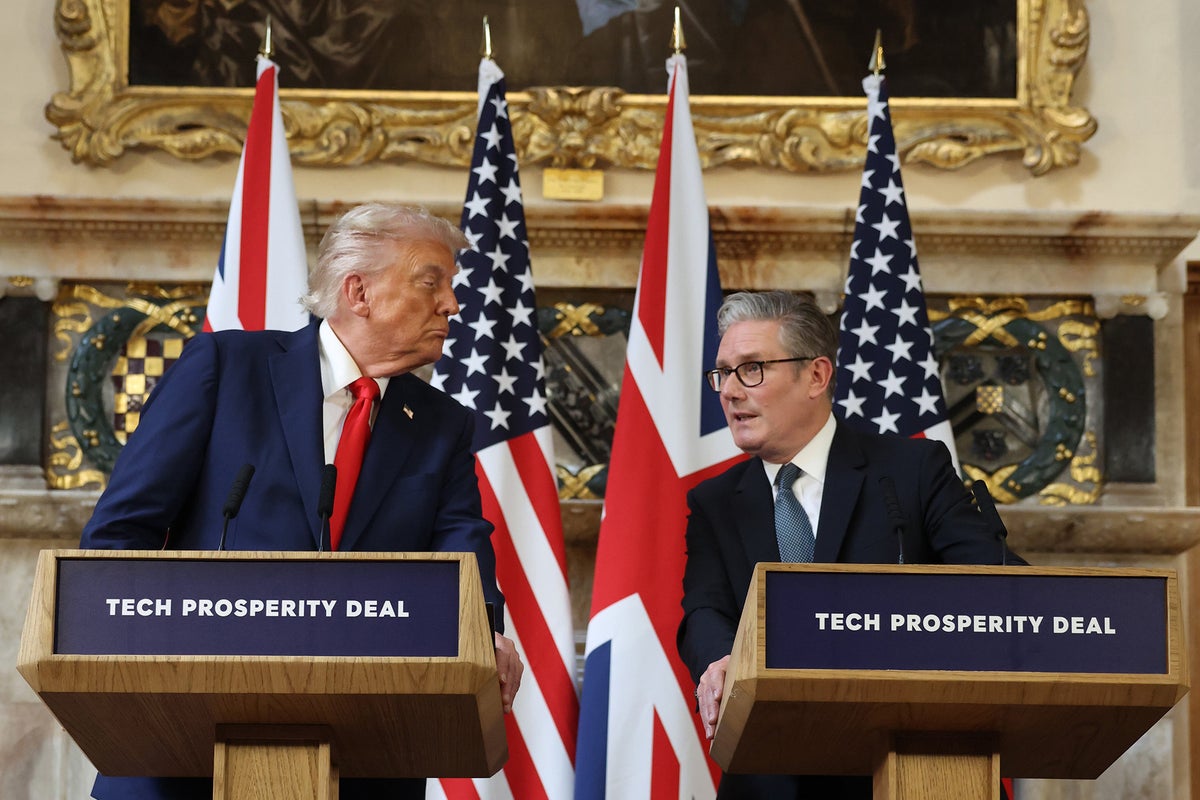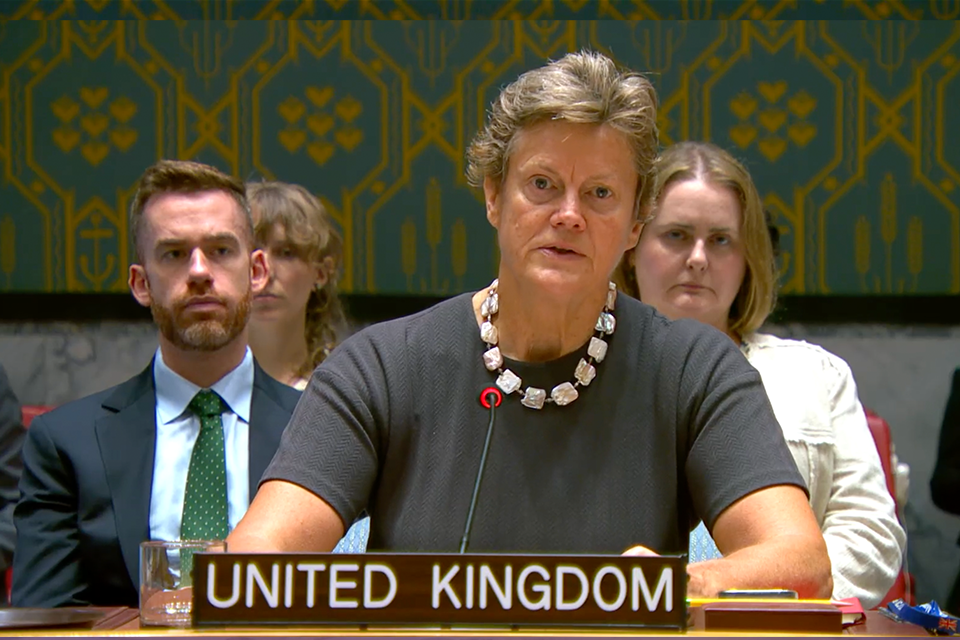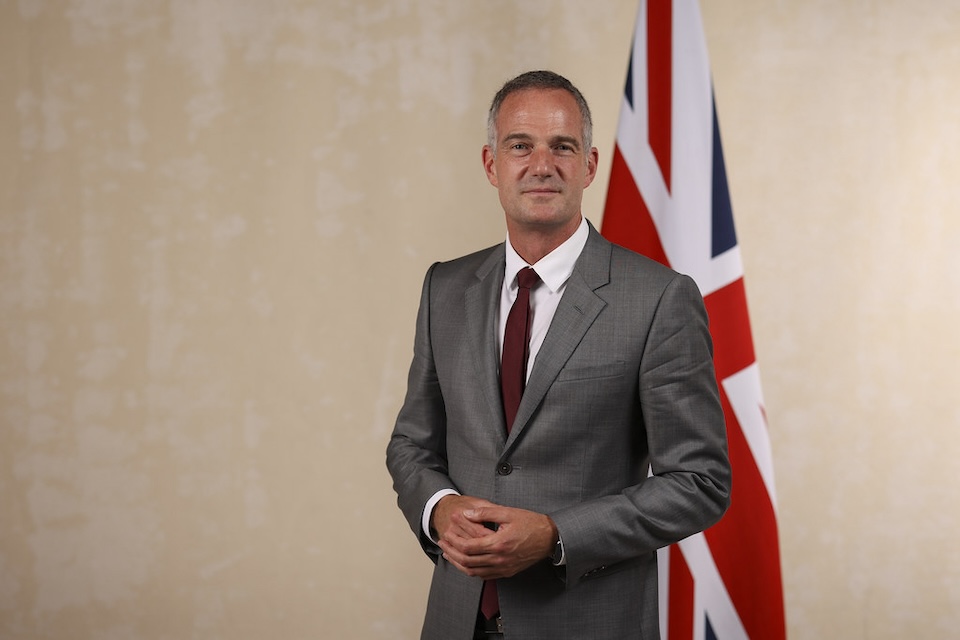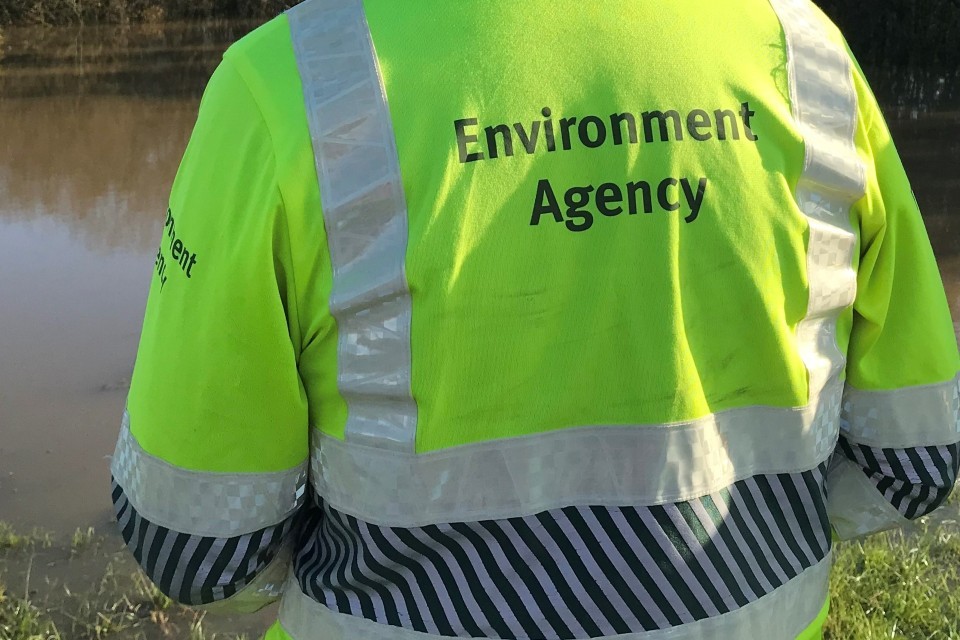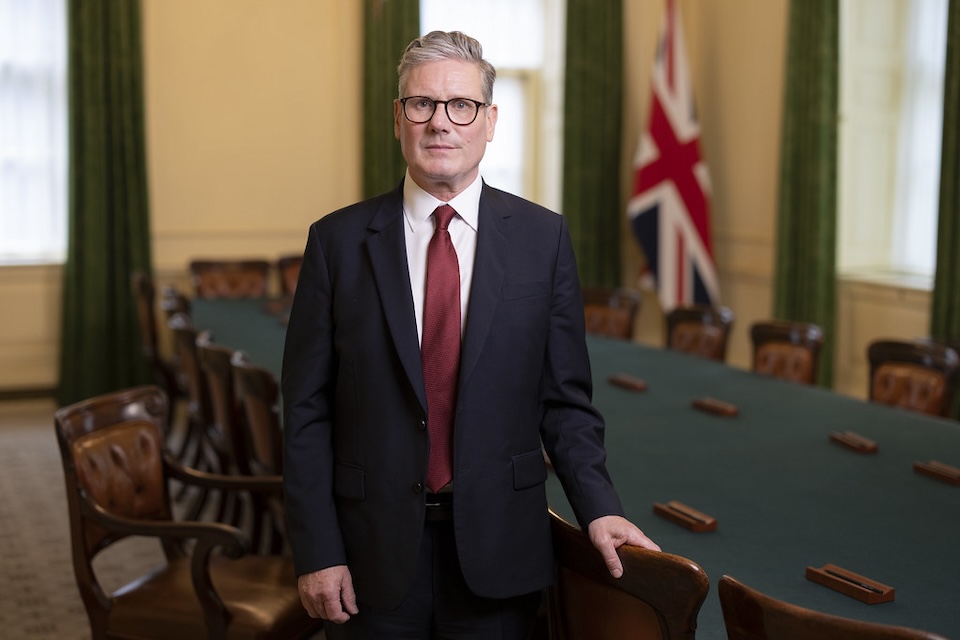MEMORANDUM OF UNDERSTANDING
Between the Government of the United States of America and the Government of the United Kingdom of Great Britain and Northern Ireland regarding the Technology Prosperity Deal
The Government of the United States of America and the Government of the United Kingdom of Great Britain and Northern Ireland (hereinafter referred to as the “Participants”),
Expressing mutual interest in science and technology capabilities and standards to usher in the next Golden Age of Innovation to fortify freedom and prosperity for generations to come;
Affirming the common desire to enhance cooperation in science and technology matters that support initiatives of mutual interest that produce tangible benefits to their citizens;
Recognizing the complementarity of the work of the Participants and their track record of joint research and innovation partnerships, their status as most trusted security and defense partners, their pro-innovation legal and regulatory regimes, their deep-rooted expertise in disruptive technologies, and the benefits of closer strategic cooperation; and
Welcoming a longstanding partnership to deliver on their joint objectives to maintain and strengthen their strategic leadership in science and technology, leveraging shared values, complementary capabilities, and coordinated policy approaches to address global challenges.
Have reached the following understandings
I. Purpose
The purpose of this Memorandum of Understanding (hereinafter “MOU”) is to enable collaboration towards joint opportunities of mutual interest in strategic science and technology disciplines, including artificial intelligence (AI), civil nuclear, fusion, and quantum technologies.
II. Areas of Cooperation
The Participants intend to collaborate in a number of disciplines, including but not limited to the following
Accelerating AI Innovation
AI is the defining technology of our age, presenting limitless opportunities to improve people’s lives. The Participants intend to collaborate closely in the build-out of powerful AI infrastructure, facilitate research community access to compute, support the creation of new scientific data sets, and harness their expertise in metrology and evaluations to enable adoption and advance our collective security. The Participants intend to leverage this infrastructure and the AI expertise across industry and elsewhere, to deliver transformational AI-driven change for our societies and economies. Focus areas for collaboration are intended to include
- establishing joint Flagship Research programs between United States (U.S.) and United Kingdom (UK) science agencies, including the U.S. Department of Energy (DOE), the U.S. National Science Foundation (NSF), the U.S. National Institutes of Health, the U.S. Advanced Research Projects Agency for Health, the UK Department for Science, Innovation and Technology (DSIT), and the UK Research and Innovation (UKRI) and other relevant departments for AI-enabled science in joint priority areas, including collaborating on the development of models and datasets in mutual priorities such as AI for biotechnology, precision medicine including for cancer and rare and chronic diseases, and fusion energy, including through joint funding opportunities and the allocation of compute via existing peered processes through resources such as the U.S. National AI Research Resource and UK AI Research Resource;
- advancing innovative research and development approaches to accelerate the application of AI for science, including automated labs and compute collaboration, including through an updated DSIT-DOE partnership and joint research opportunities supported through NSF, UKRI, and other relevant science funders;
- catalyzing an AI for space partnership between the U.S. National Aeronautics and Space Administration and the UK Space Agency, including developing AI models for space applications, supporting science and exploration missions, such as lunar and Martian foundational models;
- advancing pro-innovation AI policy frameworks and efforts to support U.S. and UK-led AI technology adoption;
- promoting U.S. and UK AI exports to offer the full stack of chips, data centers, and models;
- exploring opportunities for collaboration in building secure AI infrastructure and supporting AI hardware innovation;
- developing the workforce of the future and ensuring U.S. and UK citizens benefit from the opportunities of AI across the supply chain; and
- advancing the partnership between the U.S. Center for AI Standards and Innovation and the UK AI Security Institute towards a shared mission to promote secure AI innovation, including through working towards best practices in metrology and standards development for AI models, improving understanding of the most advanced model capabilities, and exchanging talent between the Institutes.
Unleashing Civil Nuclear Energy
The world is at the dawn of a golden nuclear age. The Participants intend to lead the world in a nuclear sector that will play a defining role in the future of energy, security, and economic might. Together the Participants intend to pioneer breakthrough technologies, streamline and accelerate regulatory processes, identify and address market barriers, secure our supply chains, beat strategic competitors to market dominance, and create high-paying jobs for American and British workers. The Participants continue to support the highest standards of safety, security and non-proliferation, and intend to work together to drive global demand for U.S. and UK standards. The Participants intend to pursue collaborative initiatives in the areas of advanced nuclear reactors, advanced nuclear fuels, and fusion energy, ensuring that the Participants remain at the forefront of fission and fusion innovation. Focus areas for collaboration are expected to include
- deepening collaboration on non-proliferation and security programs to create a safe and secure foundation for nuclear deployment into new markets, and to maximize certainty for industry;
- facilitating commercial partnerships while identifying and addressing market barriers to accelerate the deployment of advanced nuclear reactors in both the U.S. and the UK;
- supporting the U.S. Nuclear Regulatory Commission, the UK Office for Nuclear Regulation, and the UK Environment Agency (EA) to streamline and accelerate licensing, targeting reactor design reviews within two years, site licensing within one year, and the EA accelerating site permitting;
- ensuring a secure and reliable supply chain for advanced nuclear fuels in both countries, and achieving full independence from Russian nuclear fuel by the end of 2028, including through coordinated action to ensure a diverse supply of commercially available advanced fuels to support our advanced reactor programs;
- advancing global markets and leadership for the Participants in advanced fission reactors and fuels, and championing safe and secure deployment of civil nuclear exports in third countries;
- facilitating coordination of research, development, and use of experimental facilities and data, including through AI, to lay the path toward cost-competitive fusion power plants;
- leading development of harmonized, responsible, pro-innovation policy and regulation to support the emergence of a U.S. and UK-led global fusion energy market; and
- exploring opportunities for novel applications of advanced nuclear energy, including civil maritime applications, and playing a leading role informing the establishment of international standards, potential establishment of a maritime shipping corridor between the Participants’ territories, and strengthening energy resilience for the Participants’ defense facilities.
Securing Quantum Advantage
As the world’s leading quantum nations, the Participants are joining forces to seek to ensure the Participants are the first to realize true quantum advantage. Together, the Participants intend to build powerful quantum machines that transform defense, finance, and healthcare, protect the Participants’ citizens, and create high-skilled jobs. For example, quantum technologies could enable the simulation of complex molecules to accelerate drug discovery or optimize logistics and supply chains at a scale far beyond today’s capabilities. By combining the strength of the Participants’ national labs, the genius of their scientists, and the agility of their leading companies, the Participants intend to deliver unmatched innovation and keep their countries safe, prosperous, and leading the pack. Focus areas for collaboration are intended to include
- establishing a U.S.–UK benchmarking taskforce to accelerate breakthroughs in benchmarking across quantum computing hardware, software, and algorithms;
- launching a transatlantic Quantum Code Challenge to mobilize researchers to discover and deploy breakthrough quantum algorithms aligned with real-world use cases;
- harnessing artificial intelligence and high-performance computing to accelerate quantum algorithm development and system readiness through coordinated research collaboration;
- advancing trusted, interoperable standards for quantum technologies through complementary multilateral and bilateral pre-standardization activities in quantum computing, sensing, and networking;
- accelerating quantum sensing from lab to deployment by pursuing early stage, jointly supported research collaborations on priority societal challenges and by testing technologies via centers of excellence and national laboratories;
- creating a U.S.-UK Quantum Industry Exchange Program to spur adoption across defense, health, finance, and energy—through reciprocal industry engagements, aligned inputs on trade and technology policy, and targeted end‑user showcases; and
- advancing U.S.- UK collaboration through our centers of excellence to trial and deploy sensing technologies exposing new science in real-world environments.
Foundations for Frontier Innovation
The Participants intend to collaborate to seek to ensure the foundations for frontier innovation are in place. From sharing expertise on research security to collaborating on secure telecommunications, critical national infrastructure and cyber, the Participants’ collaboration is intended to support secure development of cutting-edge technologies that deliver real benefits for the Participants’ citizens.
- Research Security Recognizing the importance of shared research security goals across critical and emerging technology research and development, the Participants intend to deepen collaboration to protect their technologies and their people. The Participants acknowledge each other’s mature approaches to research security and support continuing collaborative activities to share effective practices and information on systems to identify and mitigate threats to the research enterprise including supporting capacity building for universities, research organizations, and industry; strengthening collaboration in threat analysis including in key technology areas; and leading allies and partners to adopt similarly rigorous practices to facilitate a trusted ecosystem of innovation.
- Securing 6G
Expanding their partnership in telecommunications innovation and supply chain resilience, the Participants intend to enable joint research and development in 6G-relevant technologies, such as software for AI-enabled 6G. This work is intended to be supported by joint efforts in standards bodies and in close partnership with industry, to shape global telecommunications standards with the Participants’ shared priorities. -
Positioning, Navigation and Timing
Affirming their shared dependencies on certain critical infrastructure, the Participants intend to enhance cooperation on initiatives to improve timing resilience. - Secure Investment
Recognizing the shared need to accelerate deployment of advanced critical technologies, the participants intend to collaborate on securing and scaling private capital towards developing these technologies to secure economic vitality and national interests.
III. Operation and Discontinuation
The Participants consider this Technology Prosperity Deal to build on the United States of America and the United Kingdom of Great Britain and Northern Ireland Economic Prosperity Deal. The MOU becomes operative alongside substantive progress being made to formalize and implement the United States of America and the United Kingdom of Great Britain and Northern Ireland Economic Prosperity Deal.
The Participants may modify this MOU by written mutual decision. Either Participant may discontinue this MOU by providing written notice of discontinuation to the other Participant. The discontinuation is expected to commence on a date mutually determined by the Participants or, if the Participants cannot mutually determine a date, 180 days after the date on which notice of discontinuation is delivered.
This MOU does not constitute or create and is not intended to constitute or create any legally binding obligations. Nothing in this MOU is intended to alter or affect any existing agreements between the Participants. Cooperation under this MOU is intended to take place within the framework of applicable national legislation and international obligations. Nothing in this MOU commits the participants to the expenditure of funds.
IV. Timeline for delivery
The Participants intend to establish and convene a Ministerial-Level Working Group within six months of the date this MOU becomes operative. The Working Group is intended to serve as a strategic forum to guide bilateral cooperation, set priorities, and oversee the implementation of joint initiatives. Furthermore, within twelve months of the date this MOU becomes operative, and every year thereafter, the Participants intend to convene formal discussions to assess progress under this MOU and determine the scope and direction of the subsequent phase of collaborative programs, taking into account emerging opportunities, policy developments, and shared strategic interests.
The foregoing represents the understanding reached between the Participants on the matters referred to in this MOU.

